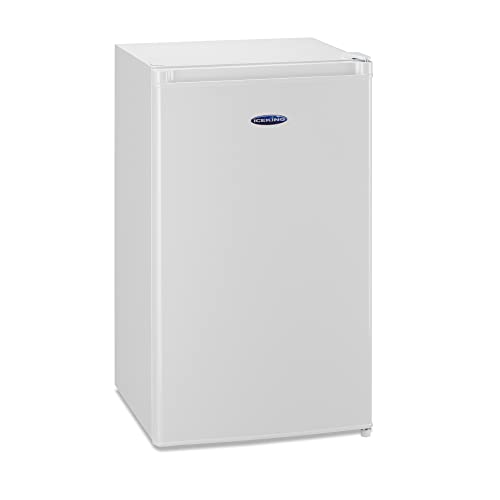Understanding Refrigerators: A Comprehensive Guide
Refrigerators, typically referred to as fridges, are important appliances in contemporary families and business establishments. They play a crucial role in maintaining food and beverages, ensuring they remain fresh and safe for consumption. Throughout the years, developments in innovation have actually changed the modest fridge into an advanced appliance that comes equipped with various functions and performances. In this article, we will check out the various types of refrigerators, key functions to think about when acquiring one, and maintenance suggestions to extend its life-span.
Kinds of Refrigerators
When it pertains to fridges, there is a multitude of alternatives readily available in the market. Each type caters to different needs and preferences, making it important for consumers to comprehend their characteristics. Below is a summary of the primary types of refrigerators:
| Type | Description | Pros | Cons |
|---|---|---|---|
| Top-Freezer | A standard design with a freezer compartment above the refrigerator area. | Economical, familiar design | Minimal storage space for fresh food |
| Bottom-Freezer | Functions a freezer compartment located at the bottom for simpler access to fresh food. | Ergonomic style, more fresh food area | Freezer might require flexing to gain access to |
| Side-by-Side | Split vertically, with the freezer on one side and the refrigerator on the other. | Convenient access to items, sufficient storage area | Narrow storage bins |
| French Door | Combines a bottom freezer with double doors for the refrigerator area, providing versatility. | Elegant style, easy access to foods | Greater price point |
| Compact Fridge | Smaller units designed for restricted areas such as dorm rooms or workplaces. | Space-efficient, portable | Limited storage capacity |
| Smart Fridge | Geared up with Wi-Fi connectivity and touch screens, making it possible for users to manage groceries digitally. | Modern functions, energy-efficient | Pricey and might need updates |
Key Features to Consider
When buying a refrigerator, it's important to examine specific functions to ensure it meets your needs. Here are essential aspects to think about:
Size and Capacity
- Make sure the fridge fits your kitchen area area.
- Consider the overall capability based upon your family needs.
Energy Efficiency
- Search For ENERGY STAR ratings to guarantee energy performance, which can save money on electricity expenses.
Cooling Technology
- Examine if the fridge utilizes traditional cooling, dual cooling, or advanced innovations like inverter compressors for better performance.
Storage Options
- Assess shelving flexibilities, crisper drawers, and adjustable compartments for effective storage and company.
Complete and Design
- Select a finish (stainless steel, matte, and so on) that matches your cooking area décor. Remember to think about the overall style, whether streamlined or conventional.
Smart Features
- Consider smart fridges if you want features like temperature level control by means of an app, stock tracking, and alerts when the door is left open.
Upkeep Tips for Refrigerators
Proper maintenance can substantially extend the life of a refrigerator. Here's a list of crucial upkeep practices:
- Regular Cleaning: Keep the interior clean and without spills and ended products. Buy Fridges -to-month cleaning is advised.
- Inspect Temperature Settings: Ensure the refrigerator is set between 35 ° F and 38 ° F, while the freezer ought to be at 0 ° F to maintain food security.
- Tidy Condenser Coils: Dust and particles can collect on the coils, decreasing performance. Cleaning them every 6 months is a good idea.
- Check Door Seals: Regularly examine the door gaskets for wear and tear. A great seal is crucial for keeping temperature level.
- Defrosting: In older designs, thaw the freezer regularly to avoid ice accumulation. Some modern fridges come with auto-defrost features.
- Keep Vents Unobstructed: Ensure airflow is not blocked by products, which can hamper cooling efficiency.
- Screen Food Storage: Properly shop foods and prevent straining the fridge, which can limit air flow.
Regularly Asked Questions (FAQs)
How long do refrigerators normally last?
- Many refrigerators last between 10 to 15 years, depending on the design and upkeep.
What can I do to keep my fridge running efficiently?
- Routine cleansing, checking temperature level settings, and keeping appropriate ventilation can boost efficiency.
Is a clever fridge worth the financial investment?
- If you often cook, captivate, or require advanced features such as remote temperature control and stock tracking, the financial investment might be beneficial.
Can my refrigerator cause high electrical power bills?
- Ineffective designs, poor maintenance, or leaving the door open can lead to increased electricity consumption.
What's the distinction between a top-freezer and a bottom-freezer model?
- A top-freezer fridge has a freezer section above the fridge, while a bottom-freezer design has a freezer drawer at the bottom for ease of access to fresh food.
Refrigerators are vital in contemporary kitchen areas, serving not only as storage for perishables but likewise showing developments in technology and benefit. With the myriad choices available, understanding the types, features, and upkeep can empower customers to make educated decisions. Appropriate care can ensure that a fridge stays efficient and practical for many years, eventually enhancing the total food storage experience in the home. Whether selecting a stylish French door design or a compact fridge for a small home, consumers today are geared up with the understanding to select the best device for their needs.

